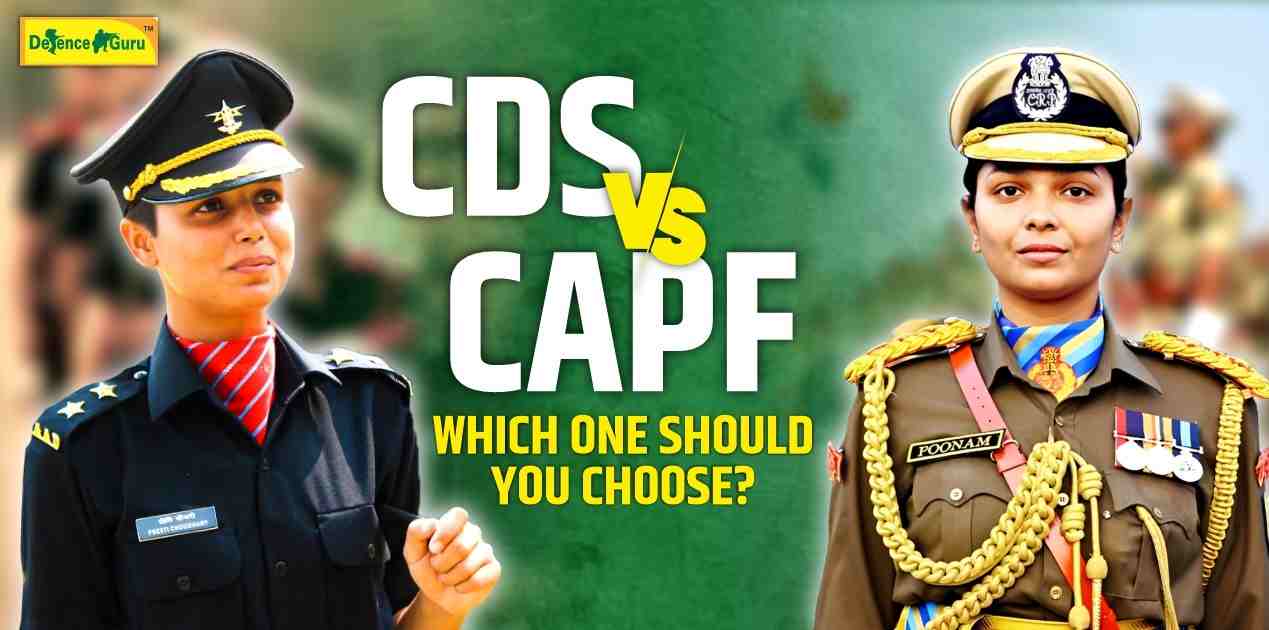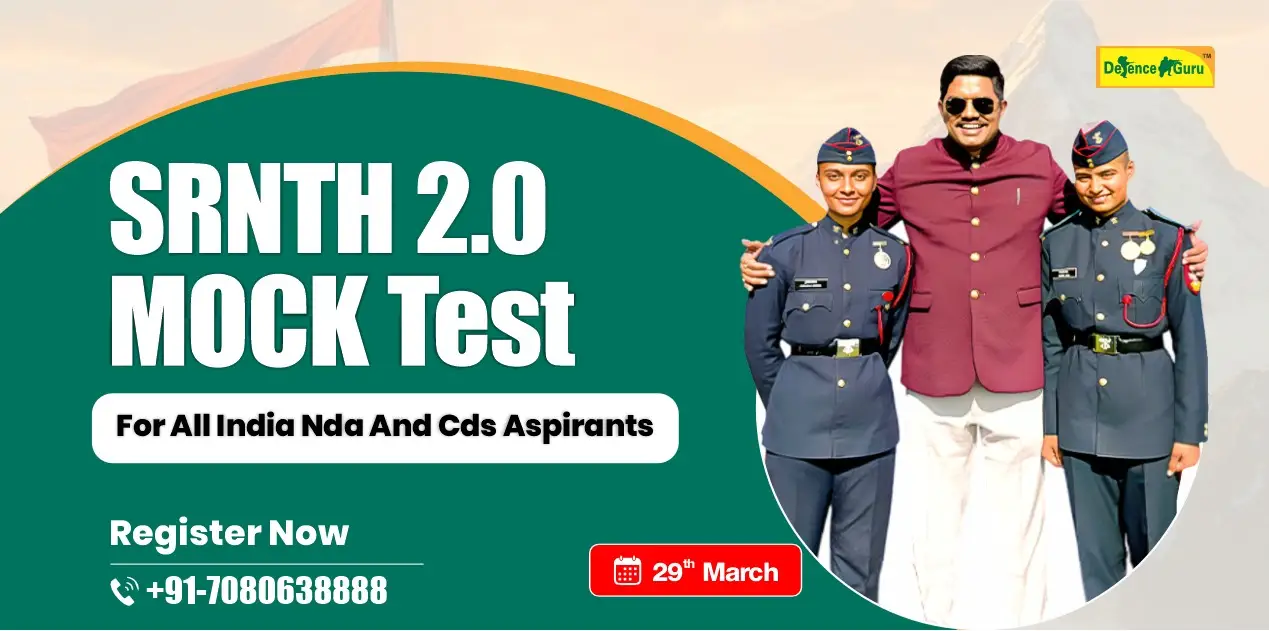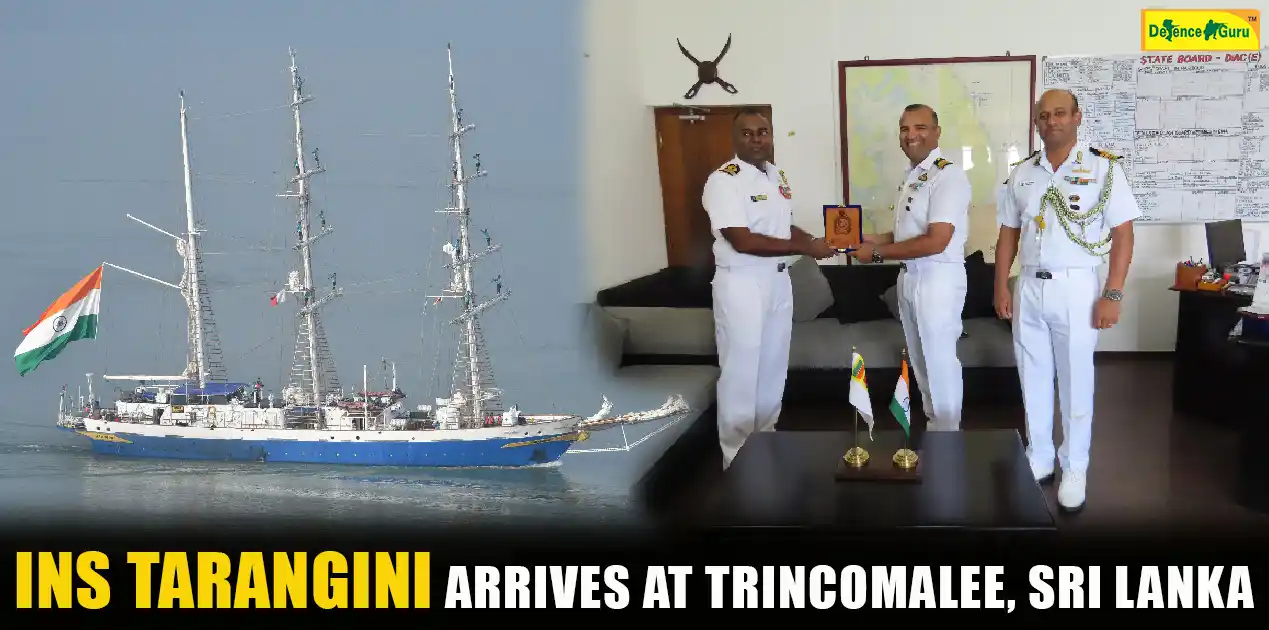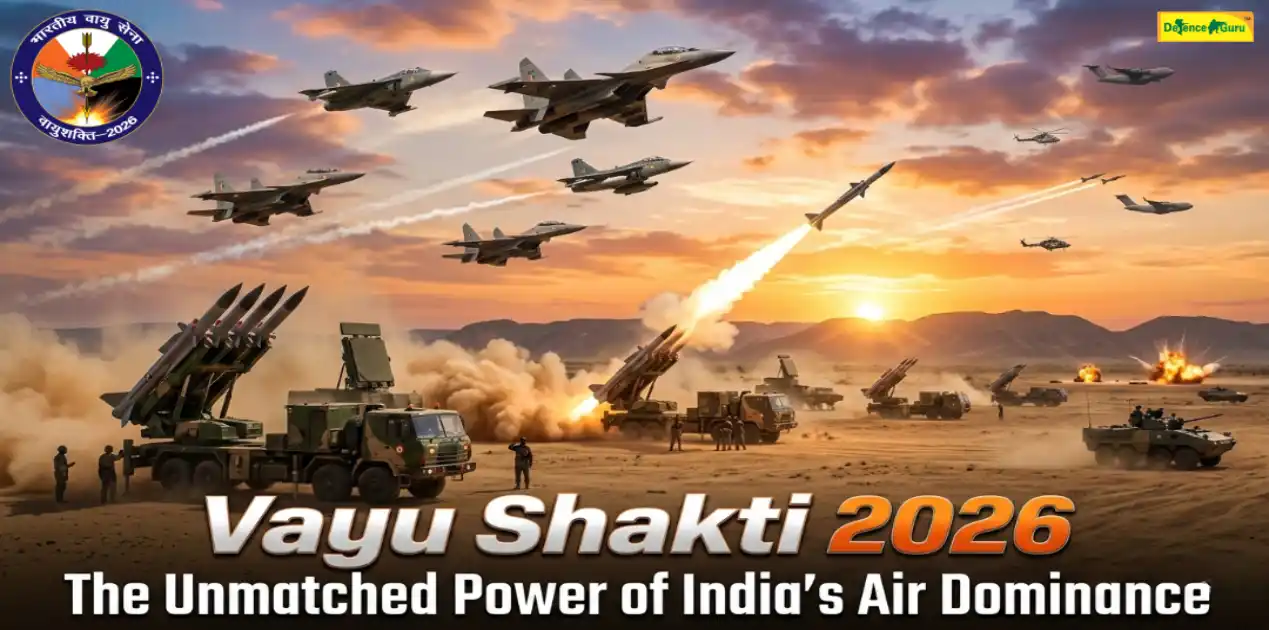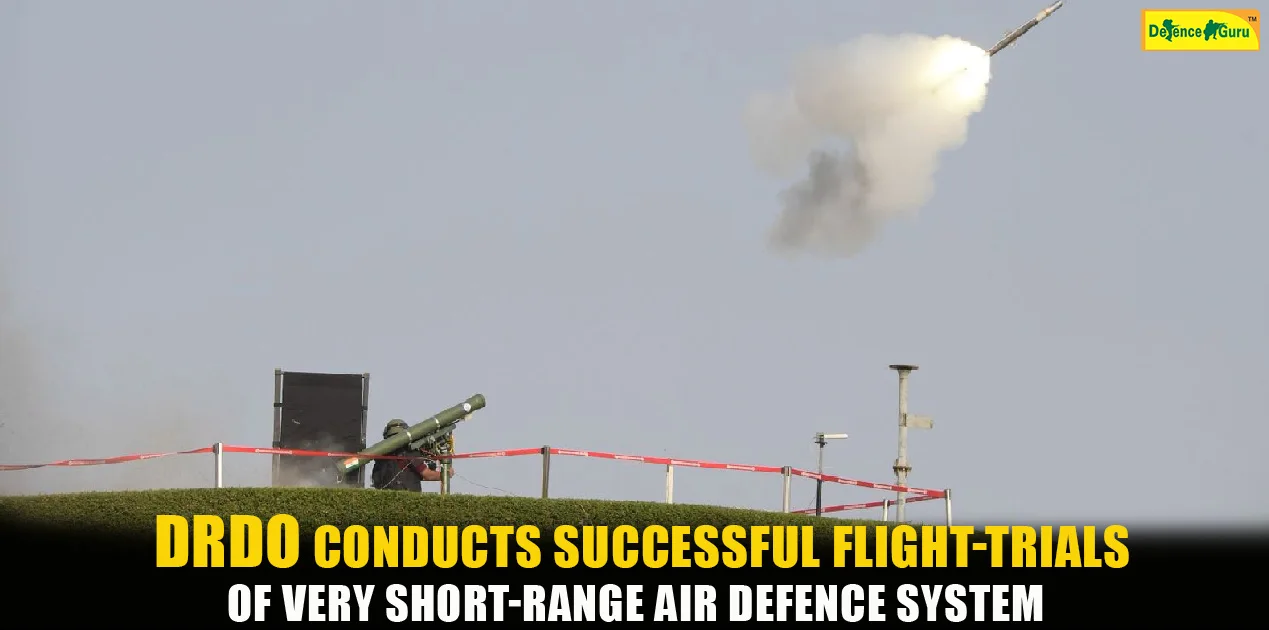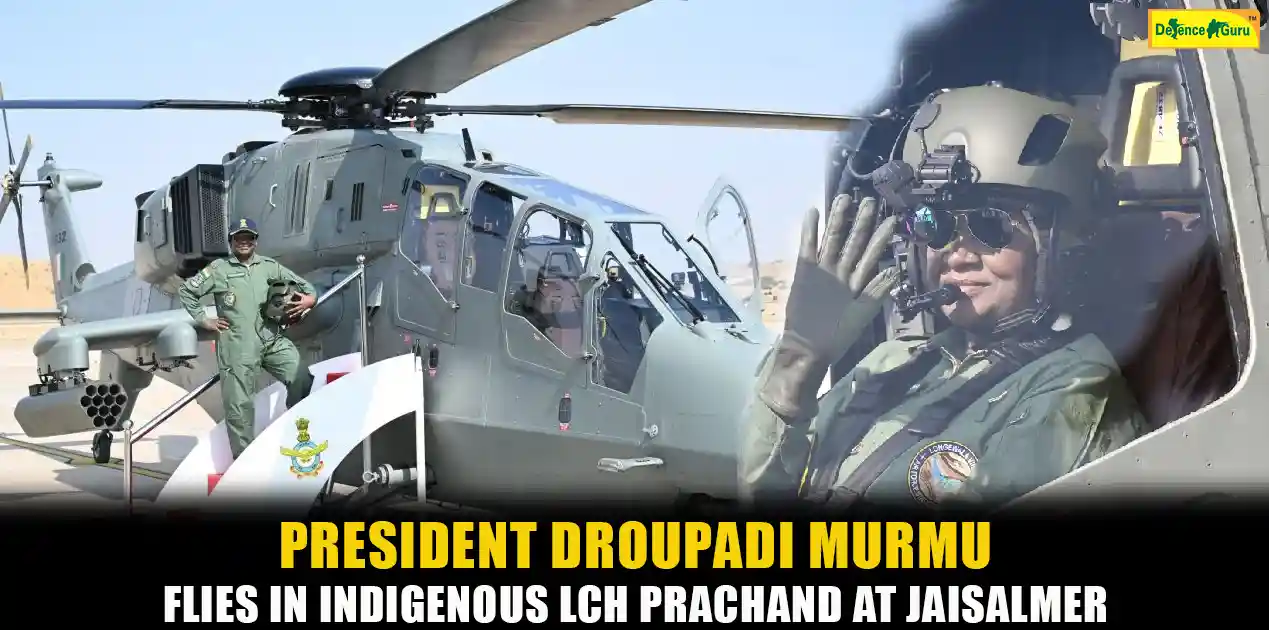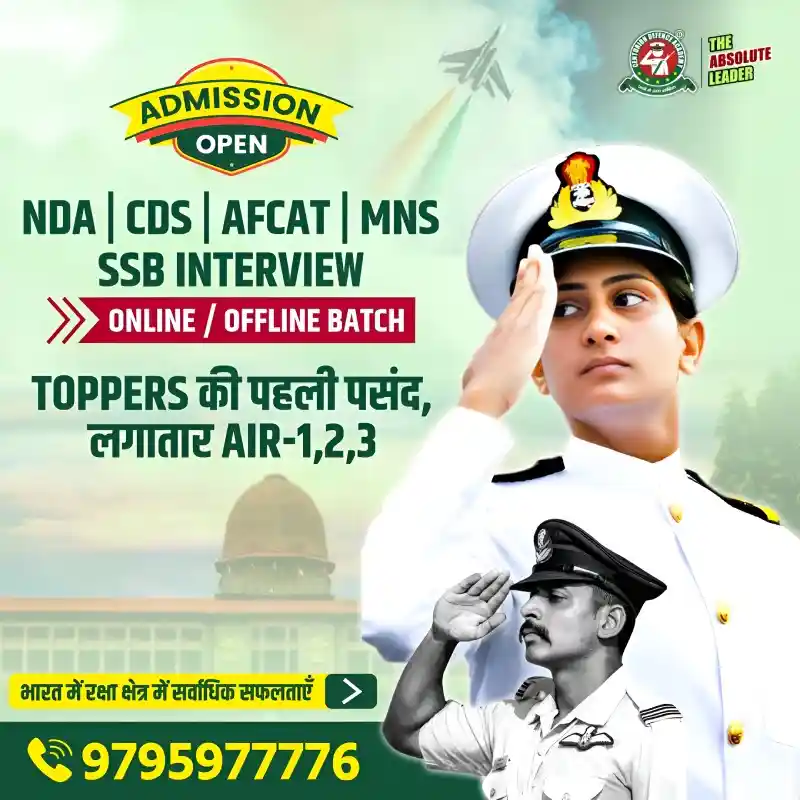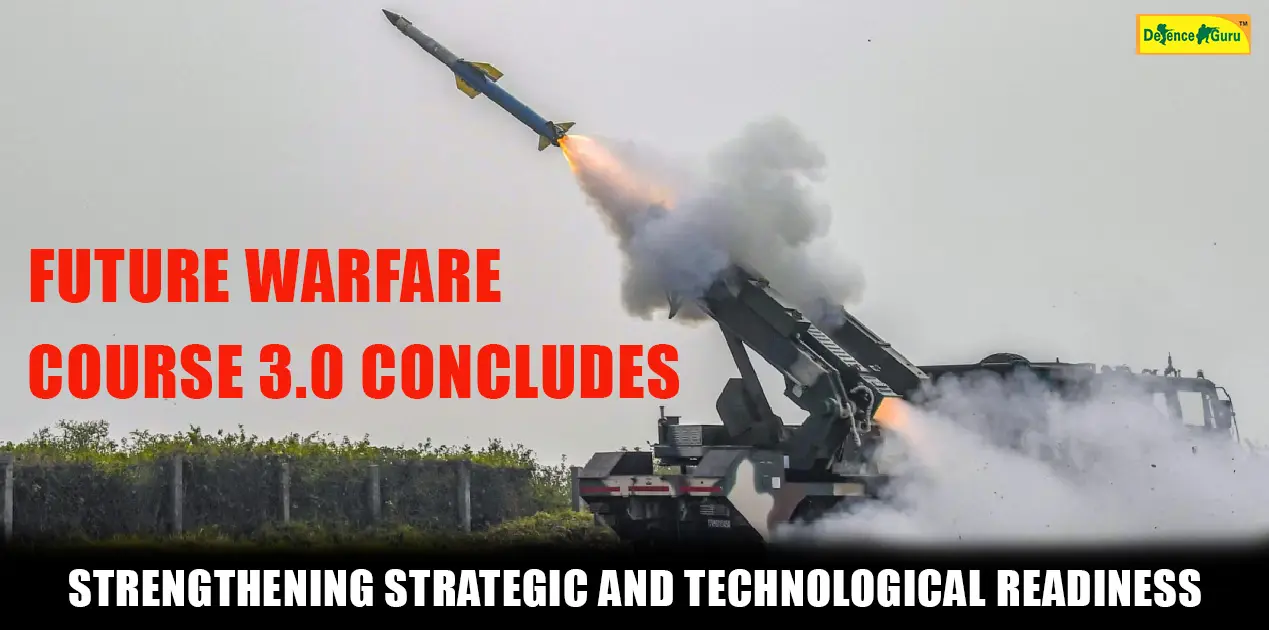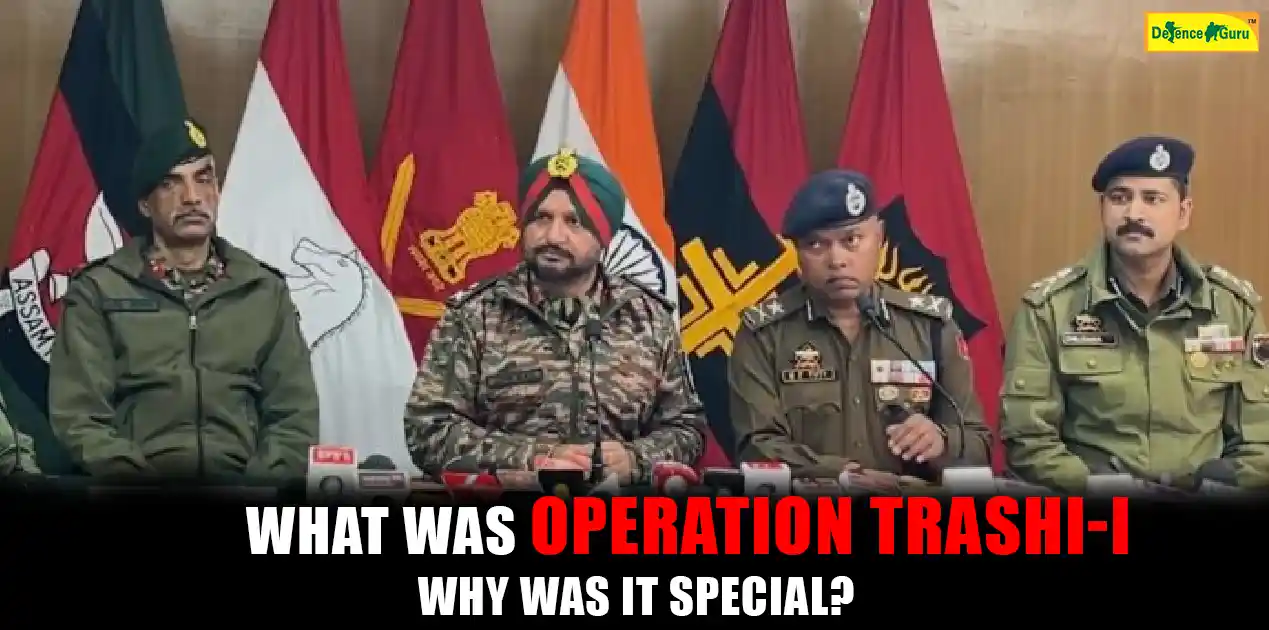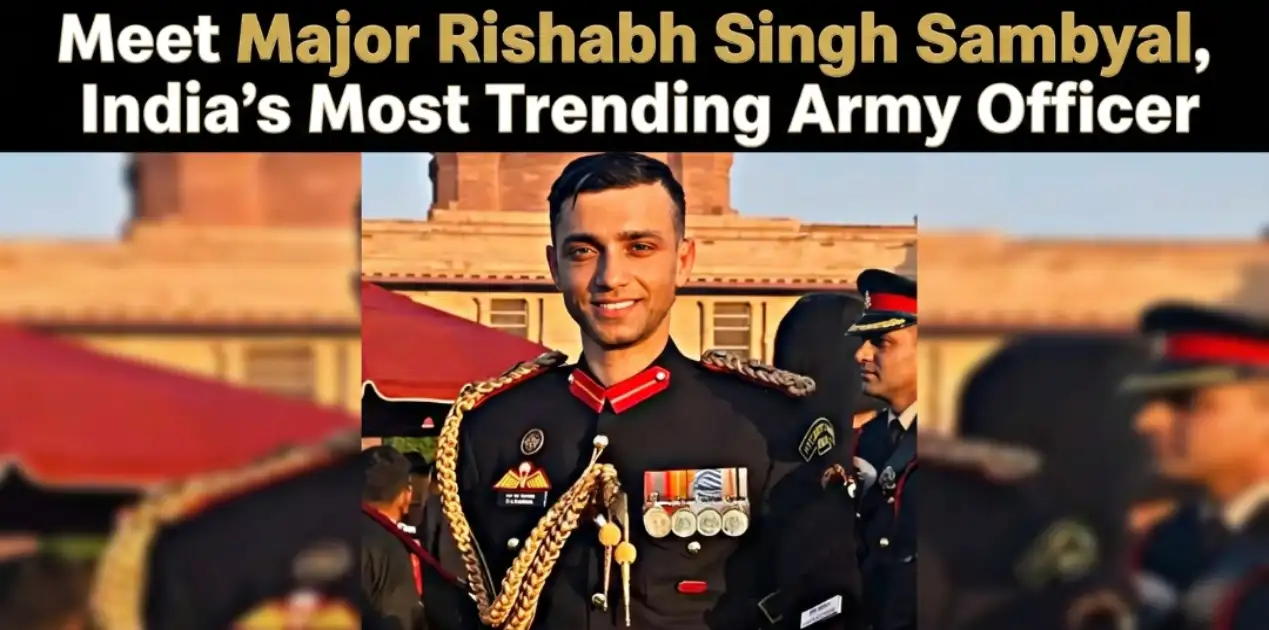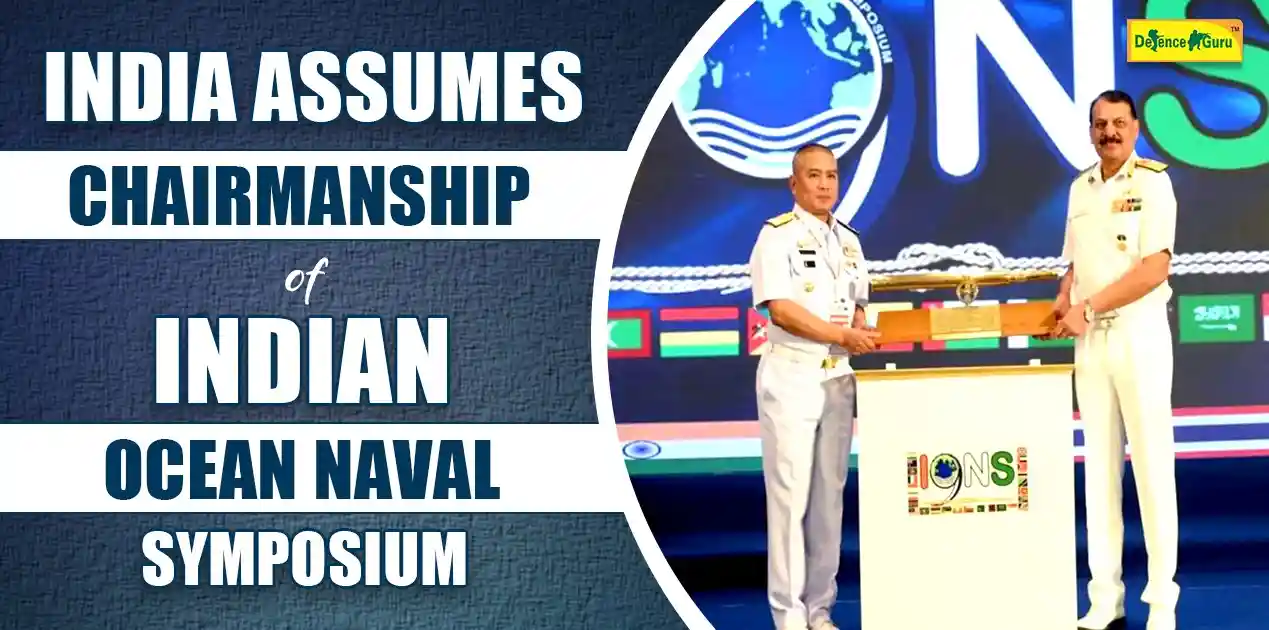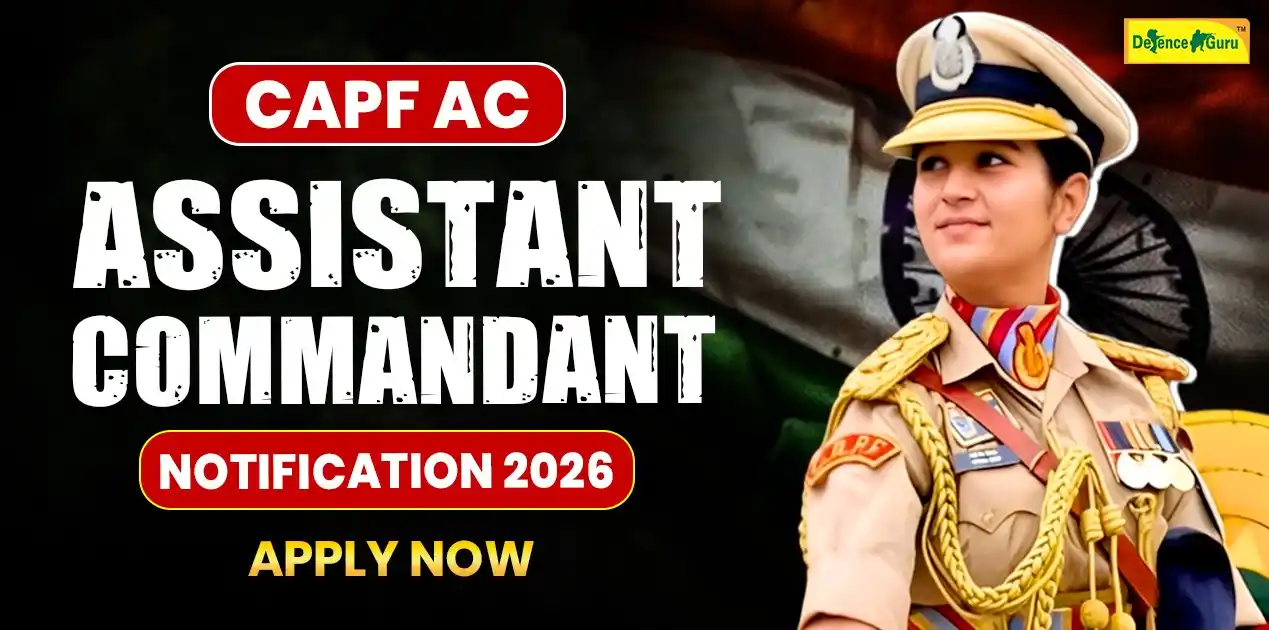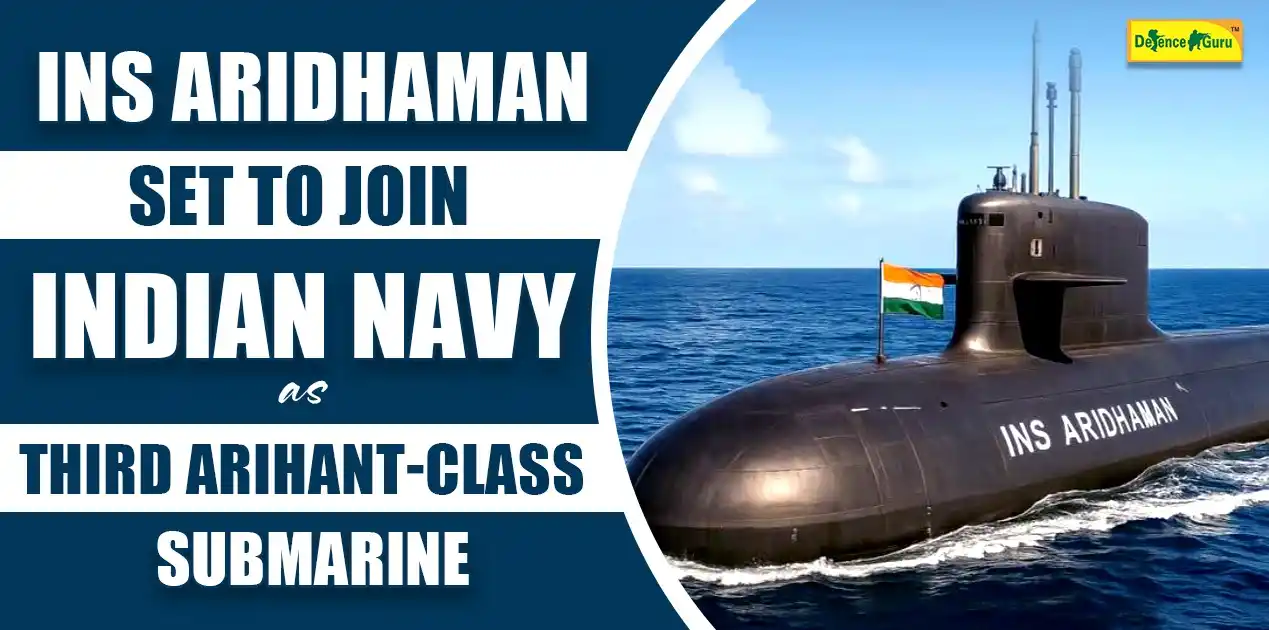Combined Defence Services (CDS) vs. Central Armed Police Forces (CAPF)
Selecting a career in the defence and paramilitary line can prove to be a career-defining choice for most young candidates.
Among the most coveted exams taken by the UPSC are the CDS [Combined Defence Services] and the CAPF [central armed police forces]. Though both provide a patriotic and disciplined career in uniform, both are quite different in their job training, way of life and prospects.
Let’s see some of these differences so you can choose which part is right for your passion and aspirations.
Introduction to CDS and CAPF
Combined Defence Services (CDS)
The CDS exam is held by UPSC twice a year for selection to the Indian Military Academy, Indian Naval Academy, and Officers Training Academy. It provides the way to an enduring or brief service appointment as a gazetted officer in the Indian Army, Navy and Air Force.
Central Armed Police Forces (CAPF)
The CAPF [Assistant Commandant] exam is also held by UPSC and appoints officers to India’s premier paramilitary forces, viz BSF, CRPF, CISF, ITBP, SSB. Chosen candidates are appointed as assistant commandants [Grp A officers] commanding armed units for internal security and management of borders.
Eligibility Criteria
|
Criteria |
CDS |
CAPF |
|
Educational Qualification |
Graduation (specific requirements for INA, AFA) |
Graduation in any discipline |
|
Age Limit |
19 to 25 years (varies by academy) |
20 to 25 years |
|
Gender |
Both men and women (OTA only for women) |
Both men and women are eligible |
|
Marital Status |
Generally unmarried |
Both married and unmarried (some conditions) |
Note: For CDS, specific technical or science degrees are required for Navy and Air Force wings.
Nature of Service
CDS Officers
The CDS exam is a gateway to a prestigious and challenging career in the Indian Armed Forces – The Army, Navy or Air Force. A career through CDS is not just a job. It’s a commitment to serve and safeguard the sovereignty and territorial integrity of the nation.
Officers selected through CDS undergo rigorous training at premier military institutions like the Indian Military Academy, Air Force Academy, Officers Training Academy and Indian Naval Academy, where they are groomed to become capable leaders in combat and crisis.
Their roles extend beyond the battlefield – they are trained in tactical warfare, counterinsurgency, and strategic planning to ensure constant war preparedness. They are also equipped to handle international military diplomacy, disaster relief, peacekeeping operations and defence cooperation with friendly foreign nations.
With cutting-edge skills, discipline and a deep sense of patriotism, CDS officers play a pivotal role in securing the nation from external threats and upholding India’s interests on the global stage.
CAPF Officers
CAPF officers selected through the UPSC Central Armed Police Forces [Assistant Commandant] exam play a vital role in maintaining internal security and law and order across the country. Their duties span a wide spectrum, including counterinsurgency operations in disturbed regions, anti-Naxal missions in left-wing extremism-affected areas and tackling insurgency in the northeast.
They lead units of forces like the BSF and ITBP in guarding India’s international borders, especially in high-altitude and hostile terrains. CAPF officers are also responsible for managing riot situations, conducting rescue operations during natural disasters and providing VIP security and election duties in sensitive zones.
Frequently posted on active field duty, they serve on the frontlines within India, dealing with complex internal challenges that require a high degree of leadership, courage and quick decision making. Their role is critical in ensuring peace, stability and national unity in diverse and often volatile environments.
Training & Academies
CDS Training
- IMA (Dehradun): 18 months of rigorous military training for the Army.
- INA (Ezhimala): Technical and physical training for Naval Officers.
- AFA (Hyderabad): Pilot and technical training for the Air Force.
- OTA (Chennai): 49 weeks of training for SSC officers.
CAPF Training
- Training varies by force, typically conducted at respective force academies like the CRPF Academy (Kadarpur), BSF Academy (Tekanpur), etc.
- Duration: ~44 weeks, includes physical training, law enforcement, and weapon handling.
Selection Process
CDS Selection
- Written Examination – Includes English, General Knowledge, and Elementary Mathematics (for IMA/INA/AFA).
- SSB Interview – 5-day personality and psychology test.
- Medical Examination.
CAPF Selection
- Written Examination – Two papers (General Ability & Intelligence, and Essay/Comprehension).
- Physical Efficiency Test (PET) and Medical Test
- Interview/Personality Test by the UPSC panel.
Key Difference: CDS requires clearing the SSB interview (which is more personality and leadership-based), whereas CAPF includes a conventional interview after physical tests.
Roles and Responsibilities
CDS Officers
- Command combat units, strategic battalions.
- Participate in national defence missions, UN peacekeeping operations.
- Engage in border conflicts, war zones, and disaster response.
CAPF Officers
- Manage internal security during riots, insurgency, and elections.
- Conduct counter-terror and anti-Naxalite operations.
- Guard borders, airports, and vital installations.
Though careers are demanding and aggressive, the CDS provides war and international military experience and whereas CAPF officers are on the front lines of internal law and order.
Lifestyle and Promotion
CDS (Defence Services)
- Highly disciplined lifestyle with frequent postings across India and abroad.
- Faster promotions based on performance and service years.
- Opportunity to rise up to the rank of Chief of Army/Navy/Air Staff.
CAPF Officers
- Regular transfers across challenging internal zones.
- Promotions are comparatively slower and bureaucratic.
- The highest rank is Director General (DG) in the respective forces.
Perk: both provide government housing and medical facilities, pensions if service and CDS benefits.
Risks and Challenges
|
Parameter |
CDS |
CAPF |
|
Risk Level |
High (combat, border postings, hostile terrain) |
Moderate to High (internal conflict zones) |
|
Work Pressure |
High during operations & war scenarios |
High during unrest, elections, and emergencies |
|
Postings |
Borders, remote areas, war zones |
Naxal-affected, insurgency-hit areas |
Salary and Perks
|
Component |
CDS Officer (Starting) |
CAPF Assistant Commandant |
|
Pay Level |
Level 10 (₹56,100 – ₹1,77,500) |
Level 10 (₹56,100 – ₹1,77,500) |
|
DA, MSP, TA, etc. |
Yes (with Military Service Pay) |
Yes (various allowances per location) |
|
Pension |
Depends on tenure & commission |
Available as per NPS |
Note: Defence officers receive Military Service Pay (₹15,500/month) additionally.
Long-Term Prospects
CDS Officers
- Option to continue for 20+ years and retire with a full pension.
- Post-retirement options: Defence attaché, PSU roles, academic, or defence strategy think tanks.
CAPF Officers
- Long service leads to senior roles in internal security.
- Can be deputed to NSG, RAW, NIA, or UN missions.
- Post-retirement options: Civil services, private security, consulting.
Which One Should You Choose?
Here are some guiding pointers:
|
Prefer CDS if you: |
Prefer CAPF if you: |
|
Aspire for a military combat career |
Are drawn to internal security and law order |
|
Are you ready for a rigorous SSB |
Are confident in written + PET performance |
|
Want a warrior lifestyle |
Seek a command role within India |
|
Have a defence background or dream |
Want service without war-zone involvement |
Conclusion
Both CDS and CAPF offer honourable, disciplined, and impactful careers serving the nation. While the CDS path leads to a more traditional military role, the CAPF route focuses on internal peace and order. Your choice should depend on your aptitude, physical fitness, temperament, and long-term career goals.
As an aspirant, reflect on your strengths and preferences. Whether you command a battalion at the border or lead a unit controlling internal insurgency, you will be serving the tricolour with pride. Choose the path that excites your spirit and challenges your will.
“The uniform may differ, but the mission remains the same — to serve the nation with honour.”
Read more:
Meet Major Deeksha: The First Lady Officer to Earn the Balidaan Badge

